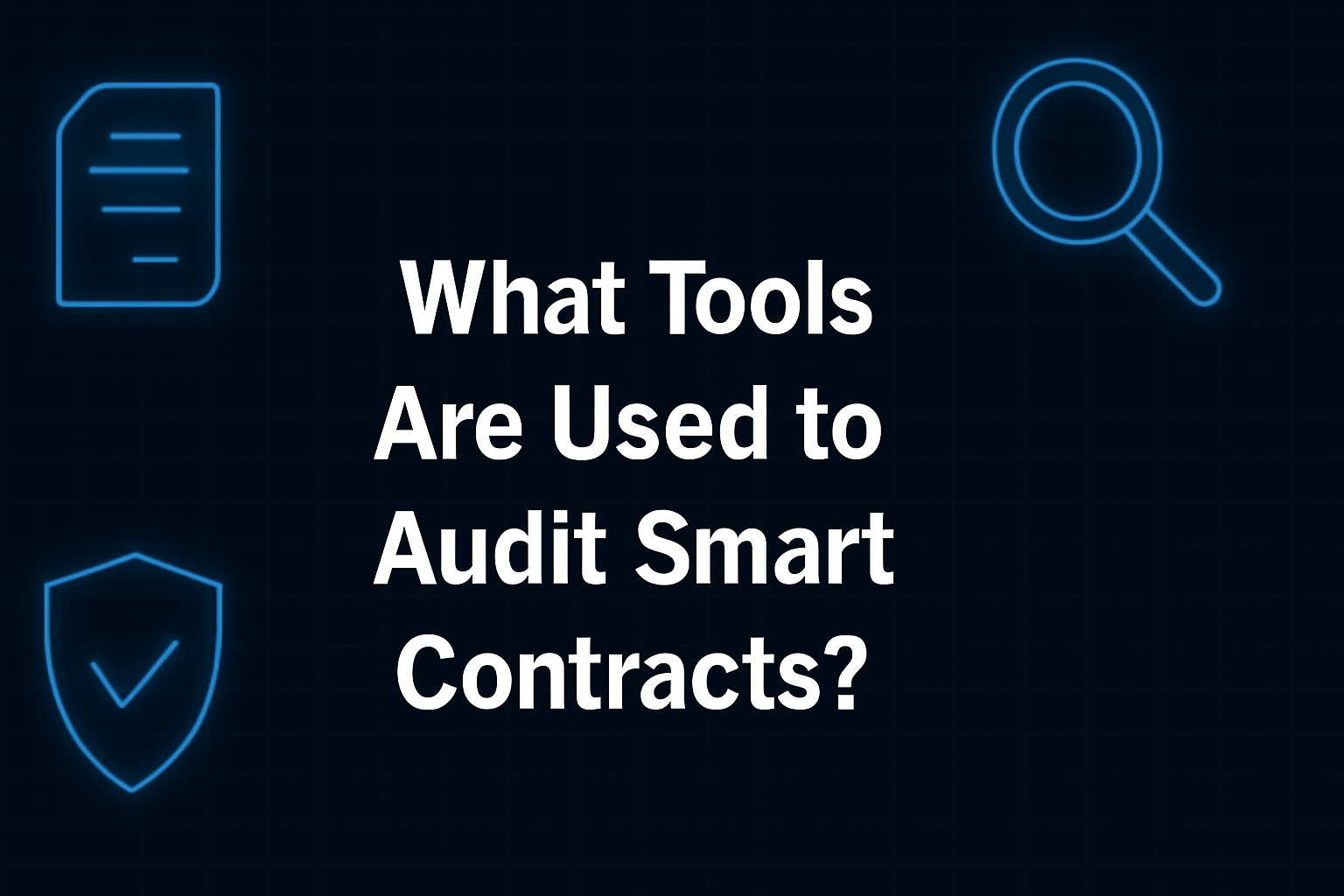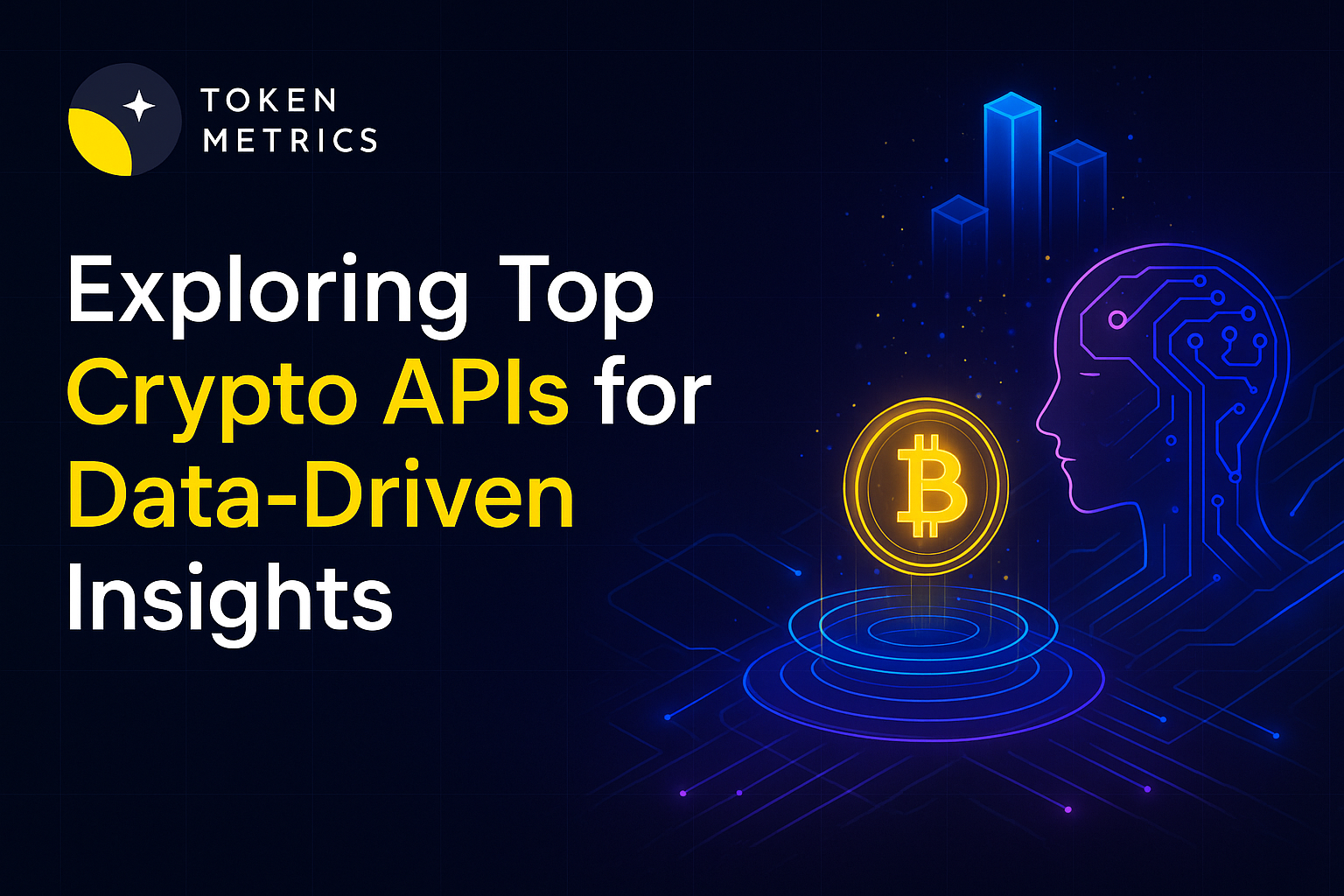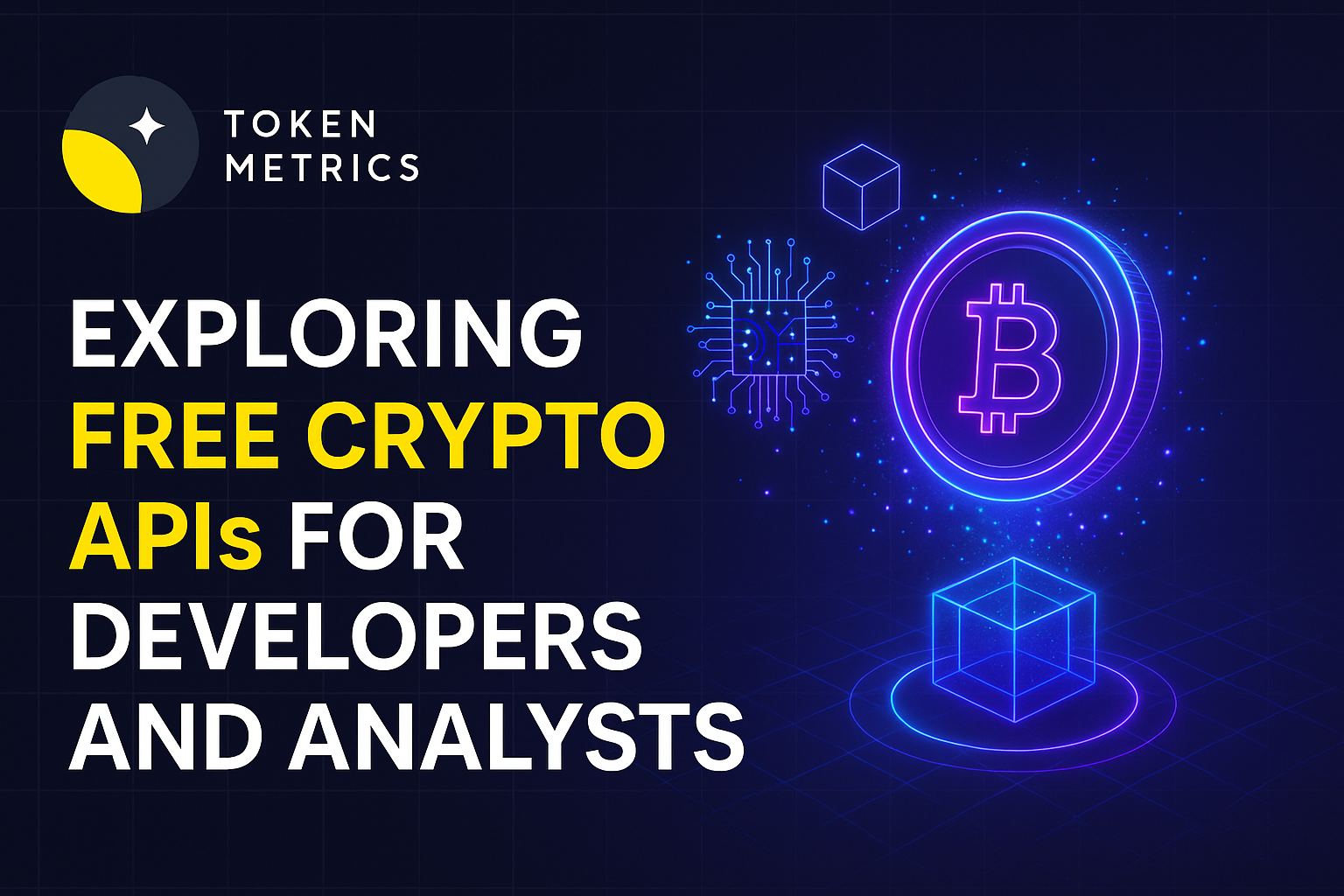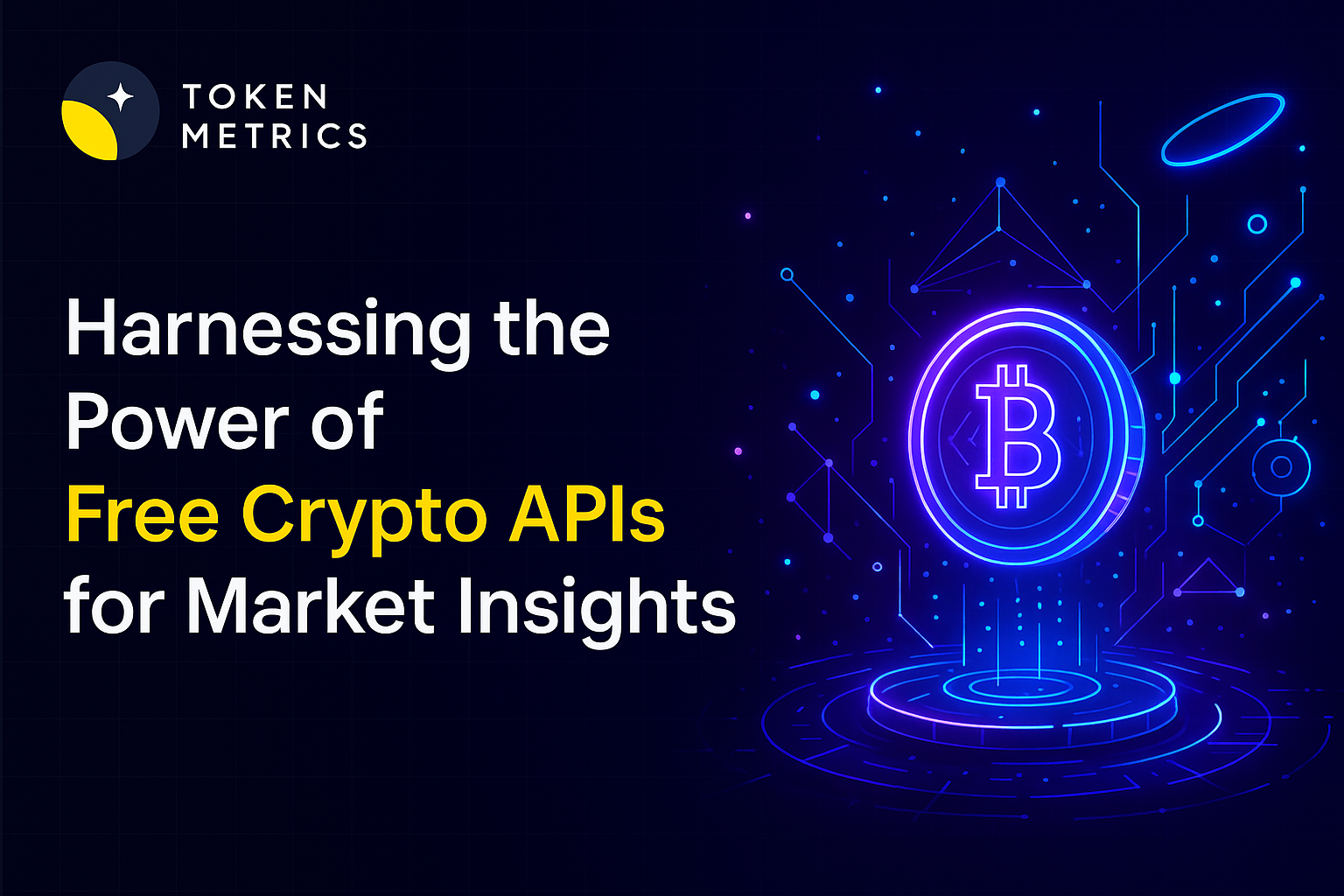
What Tools Are Used to Audit Smart Contracts? Complete 2025 Guide

Smart contract security remains one of the most critical priorities in blockchain development. With over $2.2 billion stolen from crypto platforms in 2024—a 20% increase from the previous year—the importance of thorough smart contract auditing cannot be overstated. As decentralized applications control billions of dollars in assets, a single vulnerability can lead to devastating financial losses and irreparable damage to project credibility. This comprehensive guide explores the essential tools used to audit smart contracts in 2025, the methodologies behind effective security reviews, and why platforms like Token Metrics incorporate smart contract analysis into their comprehensive crypto analytics to protect investors from risky projects.
Understanding Smart Contract Audits
A smart contract audit involves detailed analysis of a protocol's code to identify security vulnerabilities, poor coding practices, and inefficient implementations before providing solutions to resolve these issues. During an audit, security experts review the code, logic, architecture, and security measures using both automated tools and manual processes to ensure the safety, reliability, and performance of decentralized applications.
The audit process typically begins with a code freeze, where the project stops making changes and provides auditors with comprehensive technical documentation including the codebase, whitepaper, architecture diagrams, and implementation details. This documentation gives auditors a high-level understanding of what the code aims to achieve, its scope, and exact implementation strategies.
Smart contract audits typically cost between $5,000 and $15,000 for smaller projects, though complex protocols with extensive codebases can require significantly higher investments. The time to complete an audit depends on code complexity, but thorough reviews generally take several weeks to ensure all potential vulnerabilities are identified and addressed.
Static Analysis Tools: The Foundation of Smart Contract Security
Static analysis tools examine smart contract code without executing it, identifying vulnerabilities through pattern matching, data flow analysis, and abstract interpretation. These tools form the foundation of any comprehensive audit strategy.
Slither: The Industry Standard
Slither stands as one of the most powerful open-source static analysis tools for Solidity and Vyper smart contracts. Developed by Trail of Bits, Slither scrutinizes code to detect known vulnerabilities including reentrancy attacks, boolean equality issues, unused return values, and dangerous delegatecall operations.
The tool comes equipped with 92 built-in detectors and allows users to create custom detectors tailored to specific vulnerabilities of interest. This flexibility makes Slither particularly valuable for auditors who need to focus on project-specific security concerns. Additionally, Slither generates inheritance graphs and call graphs that map interactions between different functions within contracts, providing deeper insight into operational flow and system architecture.
Slither's fast execution speed enables rapid initial scans of codebases, making it ideal for continuous integration workflows where developers want immediate feedback on security issues. However, Slither is limited to Solidity and Vyper contracts, meaning projects using other smart contract languages need alternative tools.
Mythril and MythX: Comprehensive Security Analysis
Mythril is a security analysis tool for EVM bytecode that employs symbolic execution, SMT solving, and taint analysis to detect various security vulnerabilities. The tool can analyze deployed contracts by examining their bytecode directly, making it valuable for assessing contracts where source code may not be available.
MythX represents the commercial, enhanced version of Mythril, offering a more user-friendly interface and comprehensive analysis combining static analysis, dynamic analysis, and symbolic execution. The platform generates detailed reports accessible through its website, providing clear actionable insights for developers and auditors. However, MythX is a paid service with limited customization compared to open-source alternatives, and users cannot write their own detectors.
Aderyn: Modern Rust-Based Analysis
Aderyn represents the newer generation of static analysis tools, built with Rust for superior performance and accuracy. This AST (Abstract Syntax Tree) analyzer automatically examines Solidity codebases and identifies vulnerabilities in an easy-to-digest markdown format, making results accessible even for developers without deep security expertise.
Aderyn offers fast detection with low false-positive rates and integrates seamlessly into CI/CD pipelines, enabling automated security checks with every code commit. The tool allows for custom analyzer development, making it particularly useful for projects with unique security requirements or domain-specific vulnerabilities.
Dynamic Analysis and Fuzzing: Testing Under Pressure
While static analysis examines code structure, dynamic analysis and fuzzing test smart contracts under actual execution conditions, discovering vulnerabilities that only appear during runtime.
Echidna: Property-Based Fuzzing Pioneer
Echidna, developed by Trail of Bits, uses property-based fuzzing to discover vulnerabilities by testing contracts against user-defined predicates. Rather than testing specific scenarios, Echidna generates random inputs to challenge smart contracts with unexpected data, ensuring they behave as intended under various conditions.
Developers define specific properties or assertions the smart contract should uphold, enabling Echidna to target testing efforts precisely and uncover vulnerabilities related to these properties. This approach is particularly effective for discovering edge cases that manual testing might miss, such as integer overflows, unexpected state transitions, or authorization bypasses under specific conditions.
Echidna's flexibility and comprehensive toolset make it ideal for developers seeking to break even the most difficult assertions before deployment. The tool has identified critical vulnerabilities in major protocols that passed initial audits, demonstrating the value of thorough fuzzing in the security toolkit.
Medusa: Parallelized Fuzzing Power
Medusa represents an experimental evolution of Echidna, offering parallelized fuzz testing across multiple threads for dramatically improved performance. This cross-platform, go-ethereum-based smart contract fuzzer enables developers to implement custom, user-defined testing methods through both CLI and Go API interfaces.
Medusa supports assertion and property testing with built-in capabilities for writing Solidity test cases. The tool's parallel execution across multiple workers significantly reduces testing time while increasing coverage, making it suitable for large, complex protocols where comprehensive fuzzing might otherwise be impractical. Coverage-guided fuzzing helps Medusa achieve deeper analysis by focusing on code paths that haven't been adequately tested.
Foundry: Comprehensive Development Framework
Foundry has emerged as a complete smart contract development and auditing framework that combines multiple testing approaches into a unified toolkit. The framework includes Forge for testing and fuzzing, Cast for contract interactions, Anvil as a local Ethereum node, and Chisel for Solidity REPL testing.
Foundry's integrated approach enables developers to write tests in Solidity itself rather than JavaScript or other languages, reducing context switching and making tests more natural for smart contract developers. The framework supports multi-blockchain projects and enables fast integration with different networks, providing flexibility for cross-chain applications.
Formal Verification: Mathematical Proof of Correctness
Formal verification tools use mathematical techniques to prove that smart contracts behave correctly under all possible conditions, providing the highest assurance level available.
Halmos: Symbolic Execution from a16z
Halmos, developed by a16z, represents an open-source formal verification tool employing bounded symbolic execution to analyze contract logic. Unlike testing that checks specific scenarios, symbolic execution explores all possible execution paths within defined bounds, mathematically proving correctness or identifying counterexamples where the contract fails.
The tool avoids the halting problem through bounded execution, making verification computationally tractable while still providing strong security guarantees. Halmos is designed specifically for formal verification workflows, making it valuable for high-stakes protocols where mathematical certainty is required.
Scribble: Specification Language for Runtime Verification
Scribble translates high-level specifications into Solidity code, enabling runtime verification of smart contracts. Developers write specifications describing how contracts should behave, and Scribble generates assertion code that verifies these properties during execution.
This approach bridges formal verification and practical testing, allowing developers to express security properties in natural language-like syntax that Scribble converts to executable checks. Integration with other tools like Diligence Fuzzing creates powerful workflows where specifications guide automated security testing.
Cloud-Based and Enterprise Solutions
Professional audit firms offer comprehensive cloud-based platforms that combine multiple analysis techniques with expert manual review.
ConsenSys Diligence: Enterprise-Grade Security
ConsenSys Diligence provides industry-leading smart contract auditing services combining automated analysis tools with hands-on review from veteran auditors. Their platform offers APIs for affordable smart contract security options integrated directly into development environments, enabling continuous security analysis throughout the development lifecycle.
Diligence Fuzzing, powered by Harvey (a bytecode-level fuzzer), provides cloud-based automated testing with integration to Foundry and Scribble. The service identifies vulnerabilities through comprehensive fuzzing campaigns that would be impractical to run locally, providing detailed reports on potential issues.
ConsenSys Diligence has completed audits for major protocols including 0x, Keep Network, and Horizon Games, establishing themselves as trusted partners for enterprise blockchain projects requiring the highest security standards.
Cyfrin and QuillAudits: Modern Audit Services
Cyfrin and QuillAudits represent next-generation audit firms leveraging cutting-edge tools and methodologies. QuillAudits has completed over 1,400 audits across Ethereum, Polygon, Solana, Arbitrum, BSC, and other chains, securing over $3 billion in assets.
These firms combine automated tool suites with expert manual review, providing comprehensive security assessments that cover not just code vulnerabilities but also economic attack vectors, governance risks, and architectural weaknesses that purely automated tools might miss.
Specialized Tools for Comprehensive Analysis
Tenderly: Real-Time Transaction Simulation
Tenderly enables realistic transaction simulation and debugging in real-time, making it ideal for DeFi projects where understanding complex transaction flows is critical. The platform allows developers to simulate transactions before execution, identifying potential failures, unexpected behavior, or security issues in a safe environment.
Ganache: Private Blockchain Testing
Ganache creates private blockchain networks for testing smart contracts, enabling developers to simulate transactions without gas costs. This local testing environment allows rapid iteration and comprehensive testing scenarios before mainnet deployment, significantly reducing development costs while improving security.
Solodit: Vulnerability Database
Solodit aggregates smart contract vulnerabilities and bug bounties from multiple sources, serving as a research hub for auditors and security researchers. With a database of over 8,000 vulnerabilities, bug bounty tracking, and auditing checklists, Solodit helps security professionals stay informed about emerging threats and learn from past exploits.
Token Metrics: Protecting Investors Through Smart Contract Analysis
While the tools discussed above focus on code-level security, investors need accessible ways to assess smart contract risks before committing capital. This is where Token Metrics distinguishes itself as the premier AI-powered crypto trading and analytics platform, incorporating smart contract security analysis into its comprehensive token evaluation framework.
AI-Powered Risk Assessment
Token Metrics leverages advanced AI to analyze thousands of cryptocurrency projects, including comprehensive smart contract security assessments. The platform's risk analysis framework evaluates whether projects have undergone professional audits, identifies red flags in contract code such as ownership centralization or hidden mint functions, assesses the reputation and track record of audit firms employed, and tracks historical security incidents and how projects responded.
This analysis is distilled into clear Trader Grades (0-100) and Investor Grades that incorporate security considerations alongside market metrics, technical indicators, and fundamental analysis. Investors receive actionable intelligence about project safety without needing to understand complex audit reports or review smart contract code themselves.
Real-Time Security Monitoring
Token Metrics provides real-time alerts about security-related developments affecting tokens in users' portfolios or watchlists. This includes notifications when new audit reports are published, smart contract vulnerabilities are disclosed, suspicious on-chain activity is detected, or governance proposals could affect protocol security. This proactive monitoring helps investors avoid or exit positions in projects with emerging security concerns before exploits occur.
Integration with Trading Execution
Token Metrics' integrated trading platform (launched March 2025) incorporates security scores directly into the trading interface. Users can see at a glance whether tokens they're considering have passed reputable audits, enabling informed decisions that balance opportunity against risk. This integration ensures security considerations remain front-of-mind during trade execution rather than being afterthoughts.
Best Practices for Smart Contract Security in 2025
Effective smart contract security in 2025 requires multi-layered approaches combining multiple tools and methodologies. Start security testing early in development rather than treating audits as a pre-launch formality. Integrate automated tools into CI/CD pipelines for continuous security monitoring throughout the development process.
Use complementary tools rather than relying on single solutions. Combine static analysis (Slither), dynamic testing (Echidna/Medusa), formal verification (Halmos), and manual review for comprehensive coverage. No single tool catches all vulnerability types, so layered approaches significantly improve security.
Engage professional audit firms for final reviews before mainnet deployment. While automated tools catch many issues, experienced auditors identify complex vulnerabilities, economic attack vectors, and architectural weaknesses that require human expertise and creativity to discover.
Conclusion
Smart contract security tools have evolved dramatically, offering developers and auditors powerful capabilities for identifying vulnerabilities before deployment. From static analysis tools like Slither and Aderyn to dynamic fuzzing with Echidna and Medusa, formal verification with Halmos, and enterprise platforms from ConsenSys Diligence and Cyfrin, the security toolkit available in 2025 provides comprehensive coverage for protecting decentralized applications.
For investors and traders, platforms like Token Metrics make smart contract security accessible by incorporating audit analysis and risk assessment into comprehensive token evaluations. By combining automated analysis with expert insights and real-time monitoring, Token Metrics helps users identify secure projects while avoiding those with unaudited or vulnerable smart contracts—protecting capital while enabling profitable participation in the DeFi ecosystem. Whether you're a developer building smart contracts or an investor evaluating projects, prioritizing security through the right tools and platforms is essential for long-term success in blockchain technology.

.svg)

Create Your Free Token Metrics Account

.png)




%201.svg)
%201.svg)


%201.svg)










.svg)




.png)